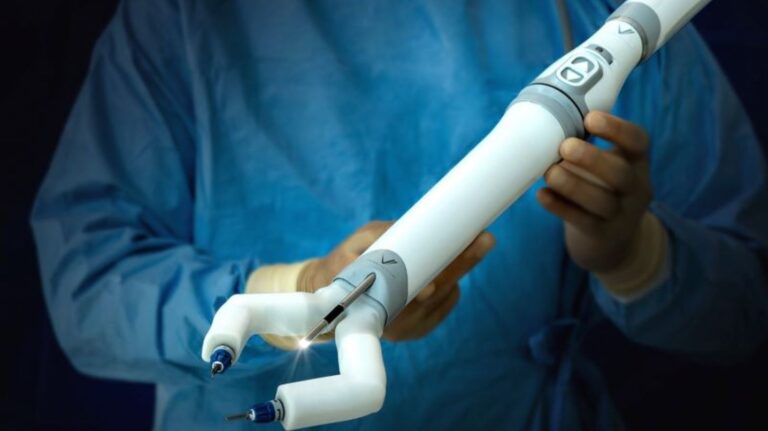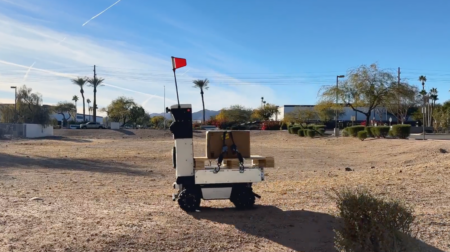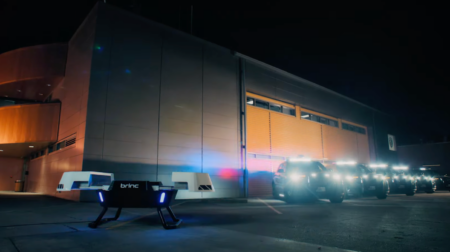Doctors stationed on Earth have managed to perform a remotely controlled robotic surgery on-board the International Space Station (ISS).
The surgery, conducted on rubber bands, was reportedly the first remotely controlled outer orbit surgery in history.
Researchers performed the surgery using a SpaceMira robot which used two appendages autonomously while being remotely operated from Earth.
The rubber bands, stretched taught in thin lines, were chosen to simulate sinew and muscle that may need to be severed delicately as to not impact surrounding tissues.
According to the research team, the robot can also operate its different ‘arms’ autonomously to complete its task and receive inputs remotely.
The experiment was conducted from the headquarters of medical technology manufacturer Virtual Incision in Lincoln, Nebraska and lasted around two hours, with six surgeons operating the robot equipped with a camera and two arms.
Earlier this month, NASA astronaut Loral O’Hara installed the microwave-sized robot on the ISS, after it took off at the Northop Grumman 20th resupply mission at end of January on a payload from a SpaceX rocket.
Researchers will compare the robot’s performance in orbit and on Earth to evaluate the effects of microgravity and time delays between space and ground operations.
Longer space missions increase the risk that crew members may need surgical procedures while away from Earth. The investigation could support development of robotic systems to perform these procedures and expand surgical options in rural and remote areas on Earth.
It’s also hoped that the SpaceMira can also have major impacts on Earth-bound surgeries, being utilised in areas separating surgeons and patients via radiation or similarly dangerous obstacles.
John Murphy, president and CEO of Virtual Incision, said: “As thrilling as it is to have our technology in space, we expect the impact of this research will be most notable on Earth.
“The introduction of [mini robot-assisted surgery, or RAS,] has the potential to revolutionise healthcare by making every operating room robot ready.
“We are taking a significant step by developing Mira, an investigational device currently under review by the FDA. The testing with SpaceMira will tell us more about the future potential of miniRAS as it might be applied to remote surgery applications.”









